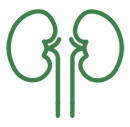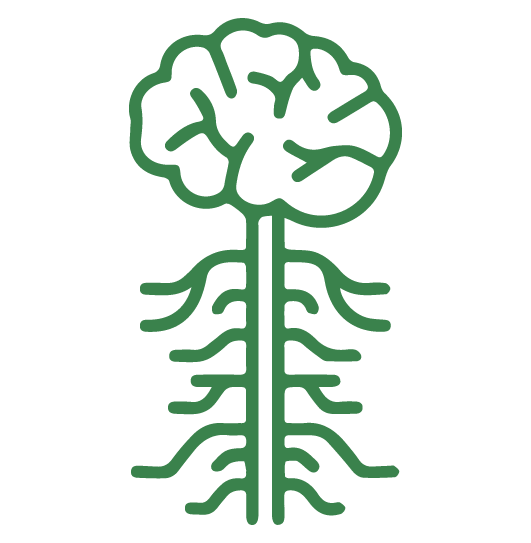Caring for patients with a terminal illness includes preparing them and their families for end-of-life care.
Three Oaks Hospice works with health care providers to ensure patients receive the best possible care when curative treatment has ceased. The ultimate goal is to provide a continuum of care that helps the patient maintain a high quality of life.
Eligibility for Hospice and Palliative Care
The decision to enter hospice or palliative care is ultimately up to the patient and family members, but the patient’s physician typically makes the initial referral. While the physician’s professional judgment ultimately affects whether a patient is referred to hospice care, there are some criteria to consider when making this type of recommendation.
Some of the criteria doctors typically consider relevant when referring a patient to hospice care include:
- A diagnosis of 6 months or less of life
- A decision to stop life-extending treatments in favor of comfort care
- A drop in body weight of 10% or more in the previous six months
- A continual decline in overall health, as assessed by the Palliative Performance Scale or determined by a significant decline in the ability to perform activities of daily living
- Frequent admissions to the hospital or ER during the previous six months
- A decline in cognitive abilities
Refer a Patient
Health care providers may also consider disease-specific guidelines when recommending a patient for hospice services. Common diseases that may necessitate a hospice referral include:
Hospice Services at Three Oaks
Three Oaks Hospice provides a wide range of hospice and palliative care services for patients nearing the end of life and those who require ongoing support during a serious illness.
One major focus of the hospice team is pain management. While treatment for a serious illness may have stopped, medication may still be used to manage the patient’s pain.
Three Oaks Hospice offers respite care, temporary care that allows family caregivers to take a break. Respite care can help prevent caretaker burnout and lets caretakers spend more quality time with their loved ones instead of focusing on day-to-day care tasks.
Our services are available 24 hours a day, seven days a week as needed. Patients receive expert medical care in addition to mental health support, companionship and spiritual support expressly tailored for individuals with a life expectancy of six months or less. For patients who are continuing treatment while seeking in-home health care and support, palliative care is an option.
Who Pays for Hospice Care?
Hospice care services are covered by Medicare Part A, so Medicare beneficiaries typically receive hospice care at no personal cost. Medicaid and private insurance may also offer coverage for hospice care and palliative care.
Because disease outcomes often fluctuate, coverage is not typically limited to six months even though hospice care is intended for patients with a terminal diagnosis. As long as a physician presents a referral indicating an expected lifespan of six months or less, the actual course of the disease may necessitate a longer or shorter time spent in hospice care.
Hospice benefits typically cover regular visits from hospice staff members, including hospice nurses, counselors, home health aides and volunteers. Hospice programs also provide medical supplies necessary for end-of-life care.
Three Oaks Hospice Mission
Three Oaks Hospice is dedicated to caring, compassionate care at the end of life. The hospice team works with the patient’s doctor and family to create a comprehensive care plan that focuses on comfort over treatment.
The core values of Three Oaks Hospice include a commitment to listen, care and serve. Treating patients with dignity and compassion is at the core of the hospice mission.
Three Oaks Hospice also focuses on a team-oriented approach, which means working closely with primary care providers to ensure patients have all they need for optimal comfort. Coordination with regular health care providers also helps keep disease symptoms under control, since hospice team members can quickly alert the physician to any changes in health status or new side effects noted during regular home visits.

Three Oaks Hospice Locations
Three Oaks Hospice has locations across the U.S., ensuring that caring, compassionate hospice and palliative care are available to patients where they live. Three Oak Hospice provides on-site care in the home or where the patient calls home, whether that’s in their residence, a family member’s, or in a medical facility.
The Three Oaks Hospice Team
Our hospice team includes professionals from various disciplines, all dedicated to ensuring that patients with a life-limiting illness are treated with the respect and compassion they deserve. The Three Oaks Hospice team includes individuals with expertise in nursing, social work and hospice management and patient care.
When a patient chooses hospice or palliative care, the hospice medical director coordinates team care to ensure the patient has everything necessary for medical care, emotional support and regular assistance with everyday tasks of living. Members of the interdisciplinary hospice team may include:
- Hospice aides
- Hospice nurses
- Social workers
- Physicians
- Therapists (speech, occupational and physical)
- Counselors
- Chaplains
- Hospice volunteers


Referring a Patient to Hospice Care
Many families delay discussions about hospice care, so physicians may wish to bring up the topic to help prepare patients and their family members ahead of time. Talking about end-of-life decisions shortly after a terminal diagnosis can help the patient consider the available options and make a decision about what health or medical benchmarks might indicate a need for hospice care. Patients often rely on their personal doctor to answer questions regarding end-of-life care. Helping patients understand when to begin hospice care can help ensure they have the emotional and spiritual support to manage this transition.
A member of the Three Oaks Hospice team can also assist during these difficult conversations and reduce concerns or misunderstandings about hospice.
Addressing Patient Concerns Regarding Hospice Referrals
When referring a patient to a hospice or palliative care organization, one concern often brought up is the concept of stopping curative treatments. A patient may worry that choosing hospice is a form of giving up, but the true intention is to help terminally ill patients manage symptoms and lead a fulfilling life during their final weeks or months. A family physician who knows the patient well can help explain the options and expected prognosis for a particular disease.
Letting patients know that hospice services include treatment for pain and other symptoms even after curative treatments have ended can help ease the transition into hospice. Emphasizing that hospice services focus on the patient’s quality of life and give caregivers support that makes interactions with loved ones more fulfilling could help the family make an informed decision about when to enter hospice.
Patients often want to spend the final days of life at home or surrounded by family and friends, and hospice care can help them achieve this goal. Because hospice services are provided wherever the patient calls home, this allows the patient can spend the rest of their life in a familiar setting with loved ones.


Emphasizing the Need for Emotional and Spiritual Support
Patients and their families often consider hospice care in terms of physical needs, such as hospice aides who help with personal care and nurses who monitor health outcomes. In many cases, the emotional and spiritual needs of the patient and family caregivers are overlooked. Health care providers are in a unique position to emphasize how entering hospice can help reduce stress, minimize the risk of caregiver burnout and help families manage the grief process.
A patient’s family and loved ones are provided with 13 months of bereavement support after the death of a loved one, if desired. Additionally, social workers assigned to patients are available to help with the paperwork and arrangements necessary during care and after the death of a loved one.
What Happens After a Hospice Referral?
Once a physician refers a patient to hospice care, admission can begin in as little as one hour. Same-day admissions are available even on weekends. When assistance is required, a member of the hospice team can be dispatched within 15 minutes for quick, convenient access to necessary care.
At the end of life, a member of the hospice care team can be in attendance to help the family with necessary arrangements and provide comfort to the patient in those final hours. During the last three days of life, the patient receives at least one visit from an registered nurse and a social worker on the Three Oaks Hospice team.
To start the hospice referral process, health care providers can contact Three Oaks Hospice using our convenient online form.












